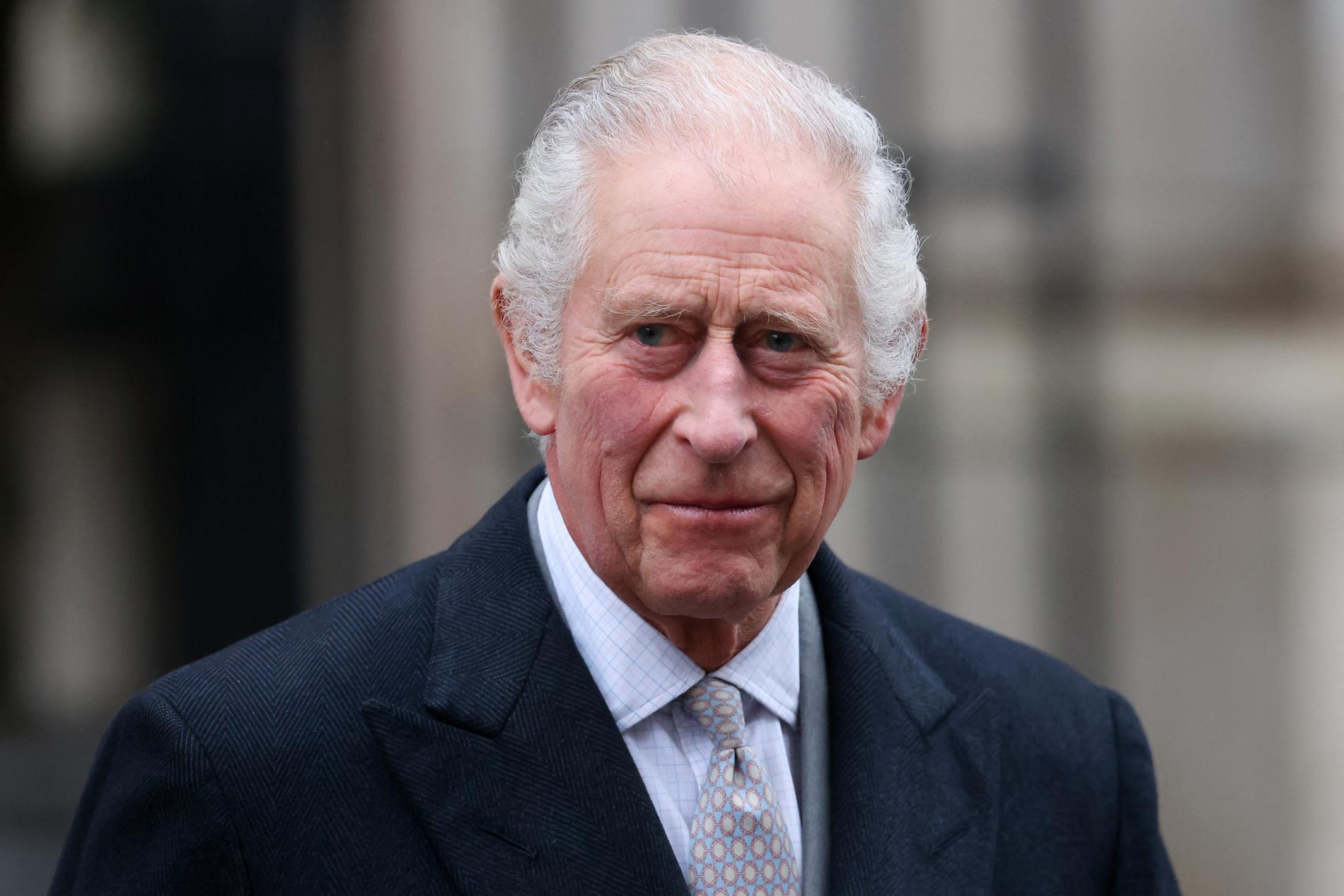THE SILENCE OF ILLNESS: The royal health was not something that was talked about. Not until now. Photo: HOLLIE ADAMS / X07937
Kings go to the bathroom. And kings get cancer. This is what it’s like to be human.
Published:
Less than 10 minutes ago
This is a comment. The comment expresses the writer’s position
King Charles III shares the fate of a thousand other subjects who received the same message yesterday. Each year, 400,000 Britons are diagnosed with cancer. One in three is the king’s age – 75 or more.
The most common form among Britons in this age group is prostate, lung, bowel and bladder cancer.
Most people die from the disease. Not of it.
Serious illness is usually a personal matter. It concerns the diagnosed. It concerns the family. It concerns most people to a small extent.
When it has constitutional consequences, it concerns an entire people. An entire nation.
When the monarch in Great Britain receives an unspecified cancer diagnosis, after being open about an enlarged royal prostate, then 67 million Britons and the citizens of 14 other Commonwealth states wonder what is going on.
Then the island kingdom’s TV channels change their broadcasting plans, as he was already on the parade bed, and SKY News holds court with the country’s leading oncologist – who is not a royal uncle, but a cancer specialist.
STEPPING IN: Queen Camilla has to settle for taking over a good part of the king’s representative duties during Charles’ illness and recovery. Photo: Marius Medby
The new openness from Buckingham Palace is also new tones.
Surprising in many ways. It breaks with the idea of the sublime. But also liberatingly honest. Although we do not know where the disease is, how serious it is, or what prognosis it entails.
The last time a British newspaper wrote about cancer in a royal prostate, the editor ended up in the British PFU, the Press’s Professional Committee (PCC).
That’s when The Evening Standard on 6 August 2008 published Prince Philip’s epic; that Queen Elizabeth’s consort was being treated for prostate cancer while he was officially in King Edward VII Hospital with a chest infection.
Buckingham Palace moved out on the same day a rare condemnation of the posting, which was called a “serious breach of privacy”.
Now it says: “His Majesty has chosen to share his diagnosis to prevent speculation, and in the hope that it may contribute to public understanding for all those around the world affected by cancer.”
Even if we do not get to know specifically what is wrong with him, the king’s admission is on a completely different level than when his grandfather, Georg VI, was terminally ill – and no one, perhaps not even the king himself, knew how seriously he was in trouble .
also read
King Charles has cancer
Doctors discovered the cancer when King Charles was recently in hospital to check his prostate.
We have had many royal heavy smokers. King Olav’s consumption of Teddy without a filter was so well known that Norwegian revue writers eventually dared to make a certain number (!) out of it. King Harald has not been a complete stranger to tobacco’s sublime appeal either. And what to say about Queen Margrethe’s yellow teeth and French cigarettes?
But King George VI of Great Britain, Queen Elizabeth’s father and Charles’ grandfather, was in a special class – allegedly – fond of nicotine’s central stimulating effect.
Well, the man won a world war with his friend, Sir Winston, so who can blame him.
But it was not particularly healthy to inhale so much carbon monoxide, tar, ammonia and benzene in one go. Not every quarter. Not on a daily basis.
In 1951, King Georg had his left lung removed. Due to “structural abnormalities”, according to the bulletin of the time. The medical term is carcinoma It is a type of cancer.
The king’s physician chose to keep the serious diagnosis hidden from the public. And for their medical colleagues. And for the king himself.
Until it was too late.
also read
The TV prince is absolutely king
Two days before the season premiere of “The Crown”, the series’ most important supporting role turns 75 years old.
King George’s wife, Elizabeth, was operated on for cancer twice. In 1966 for bowel cancer and in 1984 for breast cancer. Only in 2009, seven years after her death, did this become known through the posthumous biography of the “Queen Mother”, as she was called.
In both cases, the British press – probably against their better judgment – wrote that she had been admitted to hospital for “tests”.
When the Queen Mother passed away in 2002, she was 101 years old.
Queen Victoria’s daughter, Empress Victoria of Germany, died of breast cancer, aged 60. Her brother, King Edward VII of Great Britain, developed skin cancer but died of infections after a stomach operation.
The later Edward VIII, he who abdicated, was another royal heavy smoker. He developed throat cancer in 1971. Like his brother, Georg VI, he died of complications linked to high nicotine intake.
Somewhat more piquancy, if that is the word, are the recent revelations – or information – about Queen Elizabeth II’s passing. Recently, her death certificate was made public, and it says “Cause of death: Old age”.
And that’s probably true. She was 96 years old and full of days.
But Gyles Brandreth, the last queen biographer in the series – and long-time friend of Prince Philip – writes in his new book that Elizabeth suffered from bone marrow cancer in the last years of her life.
Cancer can affect anyone. These broken down cells do not take into account your tax bracket or where you live. Genetics, lifestyle and (un)luck, on the other hand.
Blue blood is just blood when it comes down to it.
Published:
Published: 06.02.24 at 07:26
2024-02-06 06:26:44
#Comment #kings #openness #tones
